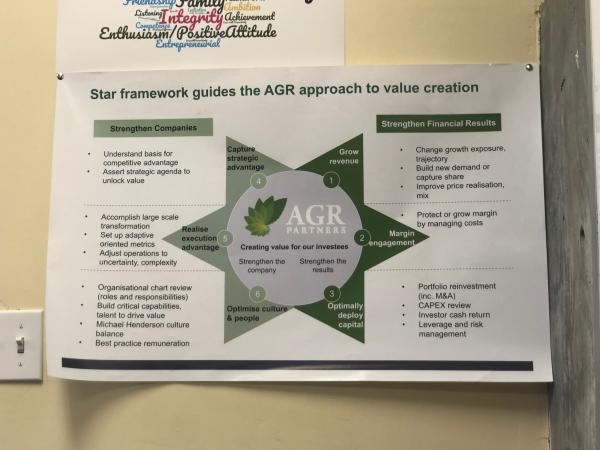Agriculture: From Field to Office

As we entered another day of our California trip, the class was excited to finally experience some actual California farms. We had visited a couple of farming operations in Central Illinois earlier in the semester, but we soon realized the farms that surround the University of Illinois’s campus are much different than those in California, which sometimes operate year-round, grow dozens of different crops at a time, and face a lot of different issues than Illinois farmers.
Our first visit of the day was at Full Belly Farm, a certified organic farming operation which grows over 90 varieties of fruits, vegetables, and other specialty crops. At the farm, we had the opportunity to speak with Paul Muller, a co-partner of the business, and learn about his business model, practices, and rationale behind why they do what they do. We had the chance to learn about sustainable farming practices and the importance of maintaining healthy soil quality. A very interesting practice we learned about at Full Belly Farm was the fertilization of soil from cover crop implementation. Cover crops fertilize the soil naturally, providing access to nutrients and clean food to the life that lives in the soil. This practice also purifies the soil in a preservative way, counter to the conventional fertilizer methods. Furthermore, we learned about the scope of their business and how they service their customers efficiently and cost effectively. It was a great experience to be able to visit a modern organic farming operation such as Full Belly Farm and analyze the differences between Illinois and California agriculture.
After leaving Full Belly Farm, we met Craig McNamara in Winters, CA for lunch at Chuy’s Taqueria. Craig is the founder and owner of Sierra Orchards, an organic farming operation that primarily produces walnuts and olive oil, and the Center for Land-Based Learning, a program that promotes youth participation in the agricultural community and assists beginning farmers in getting established. Upon arriving at Sierra Orchards, we were surprised to learn that Craig is a first-generation farmer himself. While visiting Sierra Orchards, we discussed the process of harvesting walnuts and other crops, water rights, and sustainable agriculture. We also discussed consumer behavior when it comes to food waste. The class was intrigued by Craig’s perspective on how wasting food also wastes the financial resources, labor, and water that went into making the food.
Our last visit of the day was our visit with AGR. AGR is an agricultural investment company that assists businesses who need financial aid. They have made ten investments over the course of their company life and are continuing to make strides in finding other corporations who could use their assistance. AGR also provides companies with an alternative to taking on additional debt to try and fix issues. They also stop companies from losing the majority control of their company in a sellout. These advantages are key in their business model and attracting corporations to accept their business. They focus on steps to strengthen financial results of companies and to also strengthen the company itself. By utilizing capital effectively and making smart decisions, businesses have been repaired and refocused and can now make smart business decisions, both currently and in the near future.
